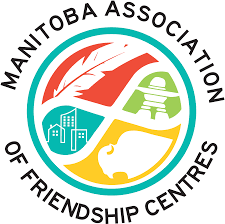Manitoba's Friendship Centers have been struggling to meet the growing needs of their communities due to a lack of financial support, despite their tireless efforts. The Manitoba Association of Friendship Centers (MAFC) acknowledges the budgetary constraints faced by the province, but it calls on the provincial government to live up to its commitment to prioritize the needs of urban Indigenous populations.
David Gray, President of MAFC, who oversees all the 11 Friendship Centers in Manitoba, stated that even though they understand the financial pressure the Government has, they feel as though their essential organization is left forgotten and suppressed. "They used to represent nearly 50% of our funding model as Friendship Centers. Now it represents only 10% of our funding and maybe even less. And worse than that is that those programs last received a funding increase in 2001,” he said. While inflation increases, the expectations remain exactly the same.
The Friendship Centers have been recognized for their tireless efforts in providing support to urban Indigenous families, individuals, and communities. However, despite the growing needs of these populations, the budget still lacks the much-needed funding enhancements. The increasing demands have put a strain on the local resources of municipalities across Manitoba. Nonetheless, there have been new proposals to bridge the gaps in services that have arisen due to years of neglect, with Centers being in a particularly advantageous position to tackle this issue.
"We've been lobbying now for 5 years to get the Government to accept our statistical analysis,” said Gray. “We have to get down to that tax; the Province is entitled to fund whoever they want. They can say they don’t believe in Friendship Centers anymore if that’s what they want to say, but I can’t imagine them saying that because we are incredibly successful in every major community across Manitoba. If you go to community leaders, council, and school boards, you'll find that they were incredibly cooperative with everybody, and as an example, the Province put zero money into assisting families. They put money into other priorities. And Friendship Centers were one of the largest groups that put money into the hands of families to get them through that horrible time. We’re not looking for special credit for that, we did our jobs! But it’s important to note in terms of what we deliver.”
Friendship Centers play a crucial role in supporting and advocating for the homeless and those in financial need. Friendship Centers are the first point of contact for many Indigenous people to access culturally based socio-economic programs and services such as housing, education, ceremony, healthcare, and youth programming. However, the lack of funding increases since 2001 has severely limited their capacity to meet the evolving needs of their communities.
“Since Thompson’s incorporation in 1974, giving 50 years the Government has been trying to fund little groups at our expense,” said Gray. “We have suggested to the Government that now there is a big problem in urban communities. It’s that there are a bunch of people who are either on drugs or have mental health problems, and most agencies are having a hard time dealing with these individuals because they don’t fit any model, and many places are afraid to deal with them, including some of our friendship centers because some of these people are incredibly dangerous, but we can’t just throw them away. We need that backing and support to help them as effectively and efficiently as possible.”
Despite the budgetary constraints faced by the province, it is crucial to recognize the unique challenges faced by urban Indigenous families, individuals, and community members. Friendship Centers have played a unique role in advocating for reconciliation since the 1950s and 60s. They are the oldest and most significant provincial-wide network of community hubs offering urban Indigenous people programs, services, and support. In 2022, Manitoba's eleven Friendship Centers collectively reached 45,888 individuals annually, with 204 programs, offering more than 640,200 points of services and making a significant impact on the lives of Manitobans.
Gray added, “At the end of the day we know that in Thompson there’s two, or three or four hundred people who are falling between the cracks being pushed aside and ignored every day and you know that they pay an inordinate amount of recourses from the police and other businesses, if we could do better, we could free up resources for other things”
The Friendship Centers have been doing their best to help the urban Indigenous population, but they cannot do it alone, especially with the lack of funding. The Manitoba Government must take action to provide the necessary resources and support to ensure that urban Indigenous people access the vital services they need to succeed in urban settings across Canada.
The Manitoba Government must prioritize the needs of urban Indigenous populations and provide the necessary resources and support to ensure that urban Indigenous people access the vital services they need to succeed. The tireless efforts and dedication of Friendship Centers in supporting urban Indigenous families, individuals, and communities have not gone unnoticed. But, to continue doing their work, they need the support of the Government.
~Matthias J. Johnson is a Local Journalism Initiative reporter who works out of the Thompson Citizen. The Local Journalism Initiative is funded by the Government of Canada.




